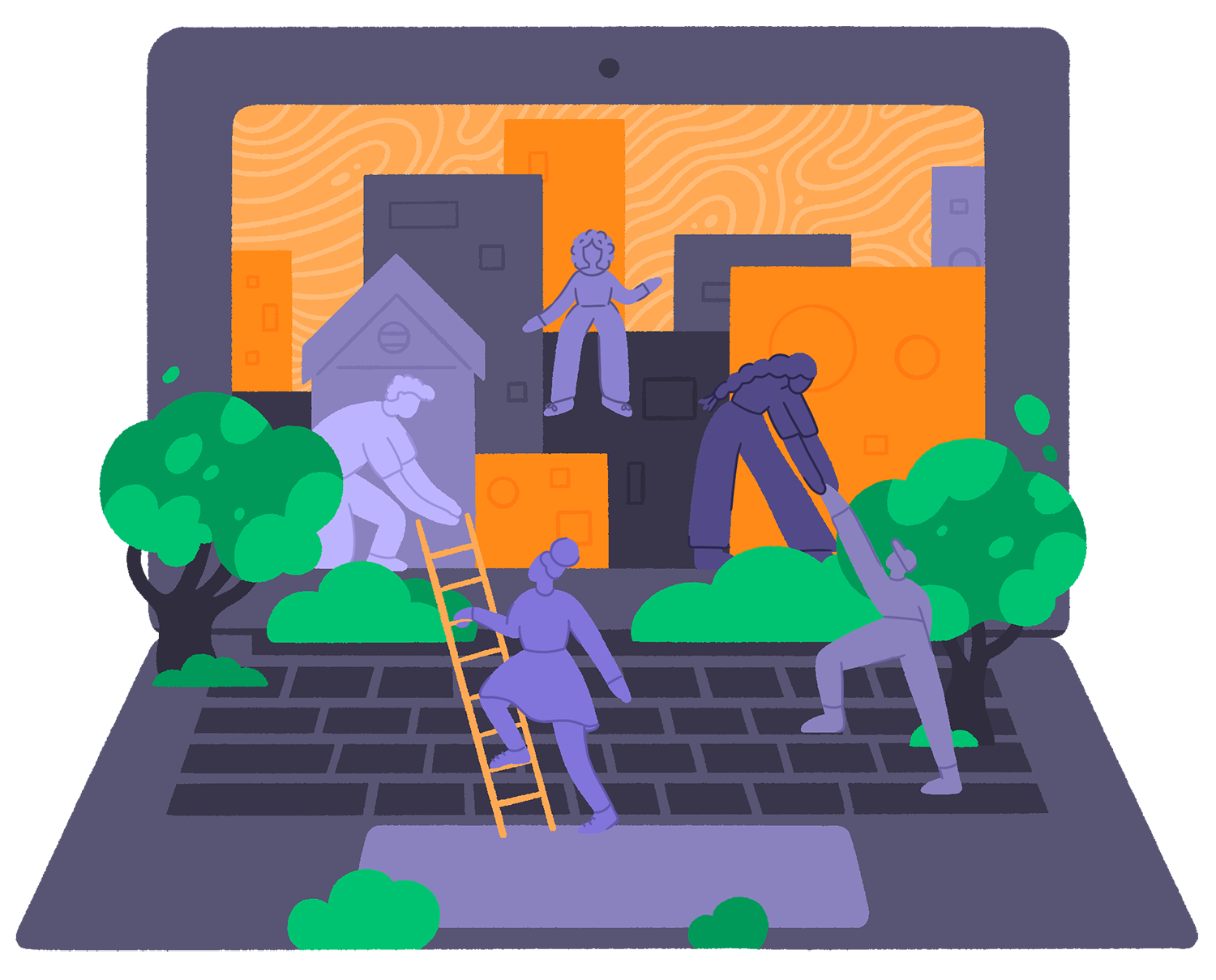Until November 3, Chicagoans will vote in the general election on a number of elected offices, in addition to three citywide referenda. One of them asks, “Should the city of Chicago act to ensure that all the city’s community areas have access to broadband internet?”
High-quality internet service is an increasingly crucial need amid the coronavirus pandemic as more city residents are attending school and working remotely. There is also the sporadic opening and closing of schools across the country, making homes an important venue for attending classes online.
According to Federal Communications Commission data, 18 million people reportedly lack broadband access. About twenty-three percent of employed people worked from home in September due to COVID-19, according to data from the U.S. Bureau of Labor Statistics.
What is a ballot referendum?
A referendum is a vote in which an entire electorate of a particular region is asked to vote on a proposal or issue. They can lead to the adoption of a new policy or a new law.
What does this ballot question mean?
The internet question, which was approved by the City Council in July, broadly asks voters whether they think all Chicagoans, regardless of where they live, should have access to broadband internet. More specifically, the question asks whether the city should make moves to ensure that access becomes a reality.
Does a referendum lead to a particular action or change in the law?
It is non-binding, meaning the city does not have to adopt it into policy or law. However, the results may inform the next steps by elected officials in City Council.
Despite not having legal weight, non-binding referenda can be an important stepping stone in eventual legal changes, which may take years or might never pan out.
For example, in a non-binding referendum present in thirty-seven ward ballots in 2015, Chicago voters overwhelmingly voted in favor of an elected school board. The “yes” totals ranged from eighty-three to ninety-three percent in all wards. Despite the strong support, the measure has failed to pass in the state legislature.
With recent calls to remove police from schools, there are renewed calls for an elected school board. The most recent version of the bill passed the Illinois House in April 2019, but has not moved in the Senate. The bill, whose lead sponsor is state Senator Robert Martwick (D-Chicago), would establish a twenty-one-member Chicago school board. Martwick was a state representative at the time the bill passed.
Another prominent non-binding referendum in Chicago asked voters if the statewide ban on rent control should be lifted.
The 2019 referendum (also on the ballot in 2018), showed voter support to lift the ban ranged from sixty-three to seventy-nine percent, but state officials have not acted to do so. Last year, HB 255 was introduced in Springfield by 39th District state Representative Will Guzzardi, but it never left committee.
Most recently, advocates have been calling for Governor J.B. Pritzker to lift the ban on rent control to help struggling families hard-hit by the pandemic, though Pritzker maintains he cannot use an executive order to do this.
What are the current disparities in internet access in Chicago?
In the spring, a research brief by Kids First Chicago and the Metropolitan Planning Council revealed some stark disparities in internet access, particularly as it pertains to children.
About one in five children in Chicago under the age of eighteen lack access to broadband, and are primarily Black or Latinx, according to their research.
In West Englewood, forty-six percent of children don’t have broadband access. The city’s predominantly white neighborhoods, however, show connectivity rates greater than ninety percent.
Census data released in 2018 showed similar data regarding broadband internet gaps in the city.
How has COVID-19 impacted access to the internet for communities?
As public health guidelines discourage people to leave their homes for non-essential reasons, communities have lost public and private venues for internet access.
People without internet at home may have previously used connections at places like public libraries, fast food restaurants, offices, and community spaces.
Meanwhile, work and school have become centered at home, requiring strong internet connections. But some families are unable to afford their basic necessities, including internet service.
In a recent poll by NPR, the Robert Wood Johnson Foundation, and Harvard’s T. H. Chan School of Public Health, fifty percent of Chicago households reported having serious financial problems during the pandemic.
One common issue that has been encountered with remote learning during the pandemic is that internet providers’ records do not always match school records or providers not recognizing certain housing units.
What are other city and state efforts to expand broadband access?
In June, Pritzker announced $50 million in Connect Illinois grants, a statewide initiative to expand broadband access across the entire state.
The first round of grants announced in June was allocated for twenty-eight projects. The $50 million were said to be combined with $65 million in matching nonstate funding for a total of $115 million.
The plans aim to expand access for more than 26,000 homes, businesses, farms, and community institutions across Illinois.
Also in June, Mayor Lori Lightfoot announced the launch of “Chicago Connected,” a program that aims to provide free, high-speed internet service to approximately 100,000 Chicago Public Schools students in their households over the next four years.
According to the program’s website, CPS will contact eligible households via direct mail, emails, robocalls, and text messages as it rolls out.
This story was produced by City Bureau, a journalism lab based in Bronzeville. Learn more and get involved at citybureau.org.
Lynda López is a reporting fellow with City Bureau, covering the election in immigrant communities. She is also an advocacy manager with the Active Transportation Alliance where she works on transportation equity issues in the region. This is her first piece for The Weekly. You can follow her on Twitter at @lyndab08.

